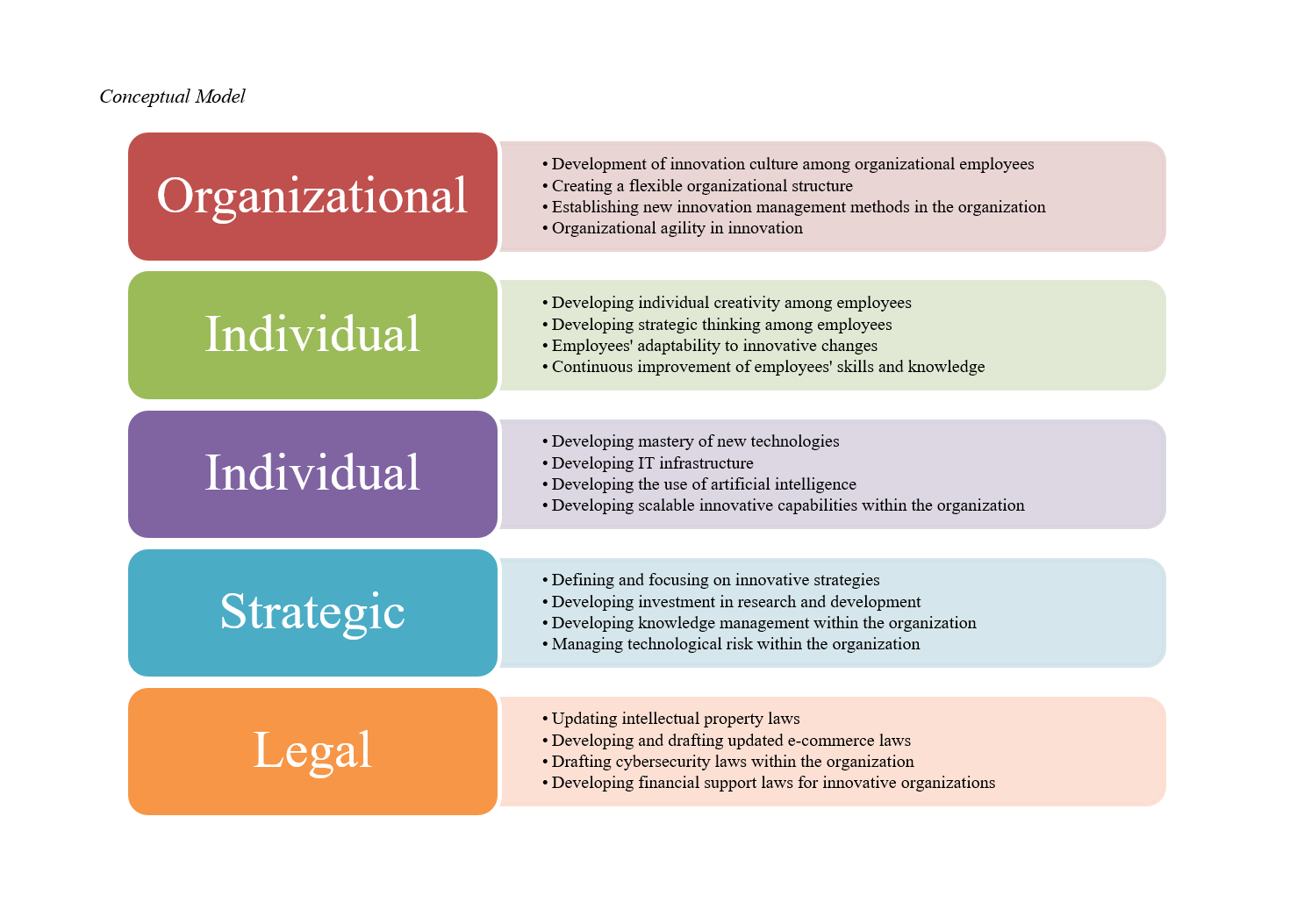Designing an Innovative Organization Model for State-Owned Enterprises (Case Study: Iraq)
Keywords:
Innovative Organization, State-Owned Enterprise, Managerial Skills, Organizational Culture, Organizational InnovationAbstract
Objective: The present study aims to design an innovative organization model for state-owned enterprises (case study: Iraq).
Methodology: The research is applied in terms of its objective and is survey-based in terms of its method. The type of research is qualitative, and the statistical population includes corporate executive experts, academic experts, and academic-corporate executive experts in Iraq. Data analysis was conducted using thematic analysis. The research tool is a semi-structured interview.
Findings: The research findings indicate the extraction of five dimensions for the innovative organization model for state-owned enterprises in Iraq.
Conclusion: The dimensions and components include: Organizational: creating a flexible organizational structure, developing an innovation culture among organizational employees, establishing new innovation management methods within the organization, making the organization agile through innovation. Individual: developing strategic thinking among employees, enhancing employees' individual creativity, adapting employees to innovative changes, continuously upgrading employees' skills and knowledge. Technical: developing proficiency in new technologies, enhancing IT infrastructure, increasing the use of artificial intelligence, developing scalable innovative capabilities within the organization. Strategic: defining and focusing on innovative strategies, increasing investment in research and development, enhancing knowledge management within the organization, managing technological risks in the organization. Legal: updating intellectual property laws, developing and drafting updated e-commerce laws, formulating security regulations
Downloads

Downloads
Additional Files
Published
Issue
Section
License
Copyright (c) 2024 Hussein Basheer Abu Khch (Author); Saeid Aghasi (Corresponding Author); Sayyed Mohammad Reza Davoodi, Ahmed Abdullah Amanah (Author)

This work is licensed under a Creative Commons Attribution-NonCommercial 4.0 International License.















